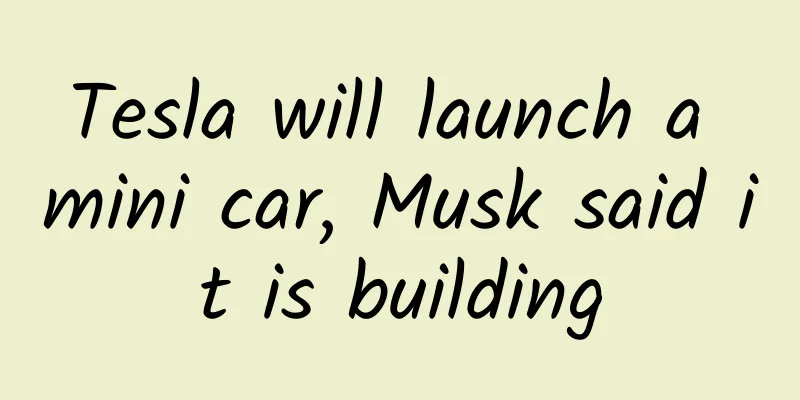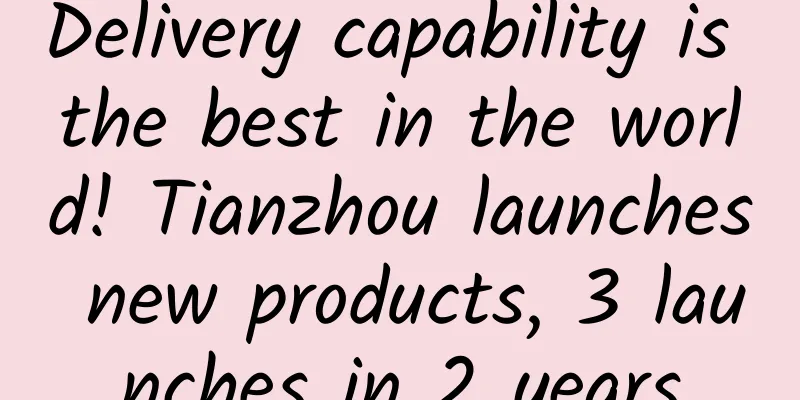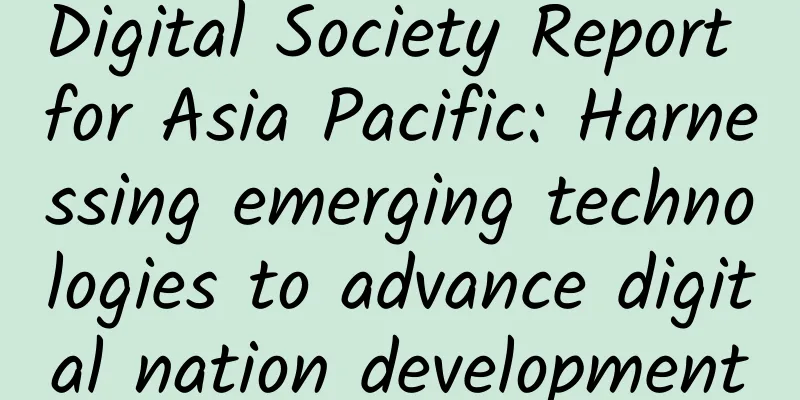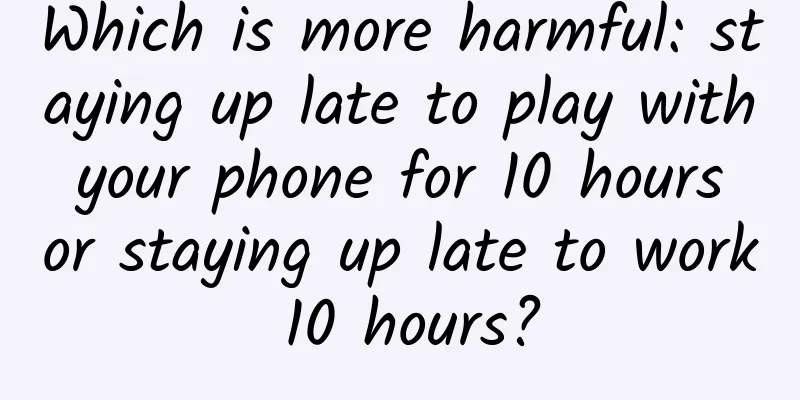Android creator Andy Rubin: a genius envied by Steve Jobs
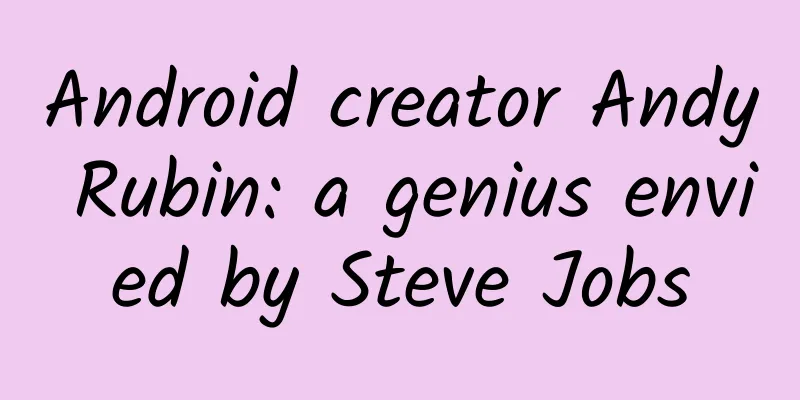
|
This year, China has been swept by an "Apple fever" with smartphones such as iPhones and tablets such as iPads being snapped up and sold out. However, to many people's surprise, in the US market, the home of Apple, the most popular smartphone is not the iPhone, but Android. Moreover, the growth rate of Android phones is staggering - 400,000 new users are added every day around the world. Today, Android and its green robot logo have become as popular as Apple's iPhone. Newsweek in the United States once commented that Android has triggered a revolution in the mobile field and is reshaping the future wealth structure of major technology companies around the world. The person who created this miracle is none other than Andy Rubin, the "Father of Android". In the 1990s, he worked for Apple and Microsoft. Now he is the vice president of engineering at Google, the leader of Android development, and an inventor with many invention patents. In his 48-year geek life, he has been committed to presenting the coolest and most advanced electronic products to the world. Andy Rubin has successfully transformed Google from the world's largest search engine to the leader of the smartphone market, making Microsoft President Ballmer and Apple founder Steve Jobs secretly jealous and crazy. He is like Bill Gates back then, stepping on a broad IT future road, but that road led to personal computers back then, and today this road leads to smartphones that may completely replace computers...
Andy Rubin Smartphones have only become popular in recent years. However, as early as the spring of 2002, Larry Page and Sergey Brin, the two founders of Google, put a dazzling smart phone on their belts. No matter where they go, they can use it to surf the Internet and use their own search engine. It was the Sidekick, a soap-shaped smartphone that was carried around by hipsters in big cities and tech geeks in Silicon Valley. The Sidekick was more flexible than the BlackBerry, which was primarily used for email, and was one of the first smartphones at the time that could seamlessly integrate the Internet, instant messaging, email and other personal computer devices. This trendy gadget is the invention of Andy Rubin. From Internet TV, to digital cameras, to smart phones, to various robots, from Apple to Microsoft and now Google, Andy Rubin is always doing the coolest research in the coolest companies. This ultimate geek, who is full of fun-loving cells, has been realizing an electronic dream since childhood: If there are no toys cool enough in the world, then I will make them myself. An Apple employee did a good deed that changed his life Andy Rubin was born in New York, USA in 1963. His father studied psychology and later founded a direct sales company for electronic devices. After taking photos of sales samples and putting them in the sales catalog, these electronic devices that completed their commercial missions became toys for little Andy Rubin. His room was always filled with the latest electronic products, and he stayed in the house every day to disassemble and disassemble them, never getting tired of it. The geek gene was planted from then on. In 1986, after obtaining a bachelor's degree in computer science from Utica College in New York, Andy Rubin joined Carl Zeiss, a company known for producing optical instruments, as a robotics engineer. He was later sent to Switzerland by the company to be in charge of another robotics project. Andy Rubin said that if it weren't for an encounter in the Cayman Islands, he might have happily worked at Zeiss for the rest of his life. In 1989, Andy Rubin traveled to the Cayman Islands. One morning, he was walking alone on the beach and found a man sleeping pitifully on a chair. After talking to this man, Andy Rubin learned that he had a quarrel with his girlfriend and was kicked out of the beach villa. Andy Rubin kindly found a place for him to live. In return, the man promised to introduce Andy Rubin to his company, which was Apple, which was in its first heyday. In this way, Andy Rubin, 26, came to Apple. At that time, Apple was basically controlled by technicians, with a casual management style and all kinds of strange ideas flying around. Andy Rubin was mainly engaged in R&D at Apple. Apple's first tower computer, the Quadra, and the first soft modem in history were all made possible by his efforts. When he first arrived at Apple, the playful Andy Rubin played a prank: he reprogrammed the company's internal telephone system. As a result, his colleagues in the same group received calls that seemed to be from John Sculley, the company's then CEO, claiming that he would give them special stock rewards. Building robots to roam around Microsoft In 1990, Apple spun off its handheld computer and communications equipment divisions to form a new company. Two years later, Andy Rubin joined the new company. Here, he fully integrated into the engineering culture of "work is life". He and several other colleagues set up beds above their cubicles in the office, ate and lived in the office almost 24 hours a day, and worked day and night to develop Magic Cap, a smartphone operating system and interface. General Magic had a brief success, with its stock price doubling on the first day of its IPO in 1995. But the good times didn’t last long. The concept of Magic Cap was too advanced, and only a few manufacturers and communications companies could accept it, and it was soon sentenced to death by the market. The R&D department where Andy Rubin worked was forced to disband. Three Apple veterans founded Artemis R&D and invited Andy Rubin to join. He moved his bed into the office again and continued to pursue his dream day and night. This time, the product he participated in developing was the interactive Internet TV WebTV, which obtained many communication patents, had hundreds of thousands of users, successfully achieved profitability, and had an annual income of more than $100 million. In 1997, Artemis was acquired by Microsoft. Andy Rubin stayed at Microsoft and quietly explored his own robotics project. He did not change his geek nature and once again got into trouble, which earned him a big brother status among geeks.
Robot built by Rubin He built a walking robot equipped with a camera and microphone, which wandered around Microsoft and recorded everything it saw and heard. One weekend, Microsoft security personnel discovered that the computer controlling the robot had been hacked. Although the hacker had not yet discovered that the computer was mobile and had a camera function, Andy Rubin's dangerous behavior was enough to anger Microsoft's security team, who asked Andy Rubin to immediately put the robot into cold storage. Android's name comes from science fiction In 1999, Andy Rubin left Microsoft and rented a retail store in Palo Alto, the center of Silicon Valley, as a laboratory. The laboratory was filled with various robots he brought back from Japan. Here, Andy Rubin and his engineer friends often gathered until late at night to conceive the possibility of developing various new products. They eventually decided to make a device the size of a chocolate bar that costs less than $10. Users can use it to scan objects, then upload the pictures to the Internet and discover information about them on the online platform. Andy Rubin said that the original intention of inventing this scanning device was to create a "digital sponge" to "suck" people back to the Internet. It was a cool idea, but the problem was that no one was willing to fund it. The smartphone brought him together with the founder of Google Andy Rubin and his friends did not give up. They founded a company called "Danger" to further improve the original invention, adding a wireless receiver and converter to the device, and named it Sidekick, turning it into an Internet-enabled smartphone. Danger and the subsequent Android fully reflect Rubin's love for robots. The name Danger comes from the space fantasy TV series "Lost in Space" that was popular in the United States in the 1960s. There was a robot in the show that often issued a "Danger!" warning. In early 2002, Andy Rubin gave a lecture to Silicon Valley engineers at Stanford University, during which he talked about the development process of Sidekick. Among his audience were two extraordinary people - Google founders Larry Page and Sergey Brin. This was the first time the two met Andy Rubin. After class, Page walked over to Andy Rubin to check Sidekick and found that Google had been listed as the default search engine. "How cool." Page said sincerely. Rubin invented the Sidekick smartphone When Andy Rubin taught at Stanford, handheld devices with mobile phone functions had already taken shape, but the development of digital wireless networks later gave this device a new life. Inspired by Sidekick, Page soon came up with the idea of developing a Google phone and a mobile operating system platform. It was this idea that brought him together with Andy Rubin again. Served as CEO, but operations were not satisfactory and he was forced to resign The process of founding Danger and serving as CEO made Andy Rubin complete the transition from engineer to manager. He began to actively think about how to develop a product and build a company from scratch. "We all tried to think about marketing strategies, and that was the first time I activated this part of my brain." Andy Rubin said. With his efforts, Danger found a model that combined the interests of mobile operators and mobile phone manufacturers. However, the company's operation was not ideal. In 2007, Danger's board of directors decided not to let Andy Rubin serve as CEO. Andy Rubin said he respected the board's opinion and participated in the search for a successor. Not long after the new CEO took office, Andy Rubin resigned. He claimed that he had completed his mission at Danger and hoped to move on. However, people familiar with the matter said that Rubin left because he was disappointed with the new management. Andy Rubin went to his old holiday home, the Cayman Islands, for a few months and began writing software to try to develop a digital camera. But the old problem came again: no one was willing to invest in the camera. After many twists and turns, Andy Rubin returned to his original idea of developing the next generation of smartphones. This time, he decided to set up a company called Android. Android.com is a domain name he has owned for many years. The word Android first appeared in the science fiction novel "Future Eve" published by French writer Lier Adam in 1886. He named the machine that looks like a human Android. Andy Rubin gathered a group of engineers and product planners with the goal of developing a mobile phone platform open to all software designers. The "Father" Android is born Andy Rubin poured all his savings into the Android project. But he still ran into a problem of lack of money. He called his old friend Perlman and told him that he was a pauper. Perlman was one of the three Apple veterans who founded Artemis. “When do you need money?” Pearlman asked. "Right now!" Rubin replied. Without saying anything, Perlman rushed to the bank, withdrew 100 $100 bills from the ATM, and went directly to Andy Rubin's office and put a thick stack of money on his desk. Perlman lent Rubin $100,000 in total to help Android complete its business plan. Soon, a venture capitalist was interested in the Android development project and proposed to acquire Android. While Andy Rubin was negotiating with the acquirer, he sent an email to Page, one of the founders of Google, suggesting that Android also had the possibility of cooperating with Google. A few weeks later, Google quickly acquired Android. Rubin became the vice president of engineering at Google and continued to be in charge of the Android project. "The world doesn't need another platform if it already has Android" Google officially announced this operating system on November 5, 2007. Data at the end of 2010 showed that Android, which was only officially launched for three years, had surpassed Nokia's Symbian system, which had dominated for ten years, and became the world's most popular smartphone platform. Currently, Android is developing rapidly and has surpassed Apple to become the largest smartphone platform in the United States and the fastest growing user platform. According to a latest statistics, there are 72.5 million smartphone users in the United States, of which Android users account for 34.7%, and the remaining BlackBerry users and iPhone users account for 27.1% and 25.5% respectively. Some institutions predict that at the current rate, Android will have a 25% share of the global smartphone market by 2014, while Apple's share is only 11%. Android-based tablets will also pose a strong competition to the iPad. Last year, Andy Rubin commented on the upcoming Microsoft Windows Phone 7 operating system in an interview: "With Android, the world doesn't need another platform. Because it's an open and even free platform." Compared with Apple's closed system, Android is an open source operating system based on Linux. In theory, outstanding engineers from all over the world can write new software for Android, expanding its development possibilities to infinity. Currently, Android's competitors include Apple's iOS, Microsoft's Windows Phone, and the BlackBerry OS used by RIM. For other operating systems, such as Microsoft's Windows Mobile, mobile phone manufacturers have to pay Microsoft a license fee equivalent to 10% of the cost of the mobile phone, while Android breaks certain restrictions by being free and open source. In addition, mobile phone manufacturers and network operators usually restrict users from using certain functions and services in order to protect their income, but Android has no restrictions and users can enjoy many services just like using a computer to surf the Internet. Android "is where my joy lies" Andy Rubin once said that Android is "my greatest pleasure". If you don't understand Android, you can't understand the greatness of Andy Rubin. Newsweek in the United States once commented that Android has triggered a revolution in the mobile field and is reshaping the future wealth structure of major technology companies around the world. Some media have compared Andy Rubin to the next Bill Gates. In the 1980s and 1990s, Apple and Microsoft competed for the world of personal computers. In 2011, Apple and Google competed for the world of smartphones, and this competition is the competition between iPhone and Android, and also the competition between Steve Jobs and Andy Rubin. This battle may be more important than the competition for personal computers, because smartphones are the portable computers of the future. Gates once opened up a "future path" for Microsoft to change the global IT industry with the Windows platform. Today, Andy Rubin is the pioneer who is driving the gold rush of smartphones in the new information age. Andy Rubin has always been committed to showing the coolest things to people. He said: "What drives me to keep moving forward is that I can reach a lot of people through Android. If there are 3.1 billion people using mobile phones, then this is a great way to reach people." The most expensive doorbell in the geek's home There is a long scar on the kitchen cabinet of Andy Rubin's house, which is the mark left by a laser-controlled Segway crashing into it. In Andy Rubin's house, computer technology is everywhere. He modified the home theater system, and once a movie ends, the lights in the living room will slowly light up. On the first floor of Rubin's house, there are also several helicopter models parked, all controlled by computers and can take off automatically.
Andy Rubin's helicopter models are all computer-controlled and can take off automatically Andy Rubin never needs to bring a key home. In his Silicon Valley villa, a retinal scanner guards the door for him. If the scanner recognizes the person, it will automatically open the door. Andy Rubin joked that it was easy for his ex-girlfriends to get in.
Andy Rubin has a retinal scanner at his door If visitors have to use the doorbell, they will witness another technological miracle: behind the glass lobby, a mechanical arm will grab a wooden stick and hit a large gong. Although Andy Rubin refused to disclose its cost, it is likely the most expensive doorbell in the world. "It's not about the cost," said Zarko Draganik, Andy Rubin's former colleague at Apple. "It represents Andy Rubin's consistent style: doing these just for the enjoyment of the process, because it's cool. All of this contains a childlike innocence." Andy Rubin's love for consumer electronics also extends to big toys - private cars. However, this hobby is incompatible with Google's corporate culture that opposes excessive consumerism. In 2004, before Google went public, Wayne Rosing, then vice president of engineering, waved a baseball bat at a company conference and threatened that if he found anyone driving a car flashier than a BMW 3 Series, he would smash it with a baseball bat without mercy. After hearing this story, Andy Rubin had to temporarily change to a new car that was not so flashy before joining Google. Andy Rubin admitted that he was very conflicted. "I am a fan of all sophisticated machinery, and Google does not encourage obvious consumer tendencies, so I had to hesitate between how to make the two coexist." I like welding guns and I am also fascinated by programming. Andy Rubin is a representative of Silicon Valley geek culture. "He is a genius who likes welding guns, is fascinated by programming, and is good at business strategy," said Perlman, Andy Rubin's friend. Andy Rubin holds many patents, three each year in 2000 and 2008. He is also credited with the world's first wireless PDA, Motorola Envoy, and the first soft modem, not to mention the greatness of WebTV, Sidekick, and Android. In addition to developing and managing teams for the company, Andy Rubin likes to build mobile robots. In the California Museum of Science and Technology, you can see several robots he built wandering around. This article is from Guangzhou Daily, reprinted from: Sina Technology |
<<: Andy Rubin's nickname at Apple: Android
>>: 12 classic keyboards in history
Recommend
The more you stay up late, the more awake you are? ——The harm of staying up late (Part 1)
This is the 3721st article of Da Yi Xiao Hu "...
Competitive product analysis: 5 scenarios of competitive product analysis methods
Competitive product analysis occupies a very magi...
How to tell whether your mobile phone screen is good or bad? Teach you how to understand screen parameters
This article explains in detail what these six pa...
How can a novice quickly get started writing promotional copy?
01. How can a novice quickly get started in writi...
An article explaining the advertising landing page
This is just part of a series of articles dedicat...
Case Analysis | How did Zhangmen 1-on-1 grow from 0 to 300,000 users?
Faced with high public domain customer acquisitio...
Huawei's Yu Chengdong: Self-developed operating system will be available as early as this fall and compatible with Android
[[265978]] Recently, Huawei's launch of the &...
Bone search: This new discovery is expected to fill the gap in the ancient human gene pool in Jiangnan
The Sanxing Village Neolithic Site in Jintan, Jia...
Is LCD blue light harmful, but OLED blue light is harmless? Who is fooling users?
In the past six months, in the color TV market, a...
App promotion, if you can do these 4 things, you will be an expert!
Recently, people often ask me about promotion. So...
Dell Inspiron 12 is not only about changing your mindset, it's also about being online and on standby.
In recent years, the emergence of a large number ...
15 lessons on financial management for women, teach you how to plan your household expenses from scratch and earn enough to buy a house at home
Her name is Wei Xiaowei, a mother of two who deal...
iOS 16.3 battery life test is out, improving
Last Tuesday, Apple released the official iOS 16....
Good news for those who love to pick up trash! A 3-cent bottle can be sold for 20 cents here
On October 30, 2023, the United Nations Environme...
Why are water bears so tenacious? New research reveals their "secrets" | Science and Technology Weekly
Compiled by Zhou Shuyi and Wang Xiang Why are wat...
